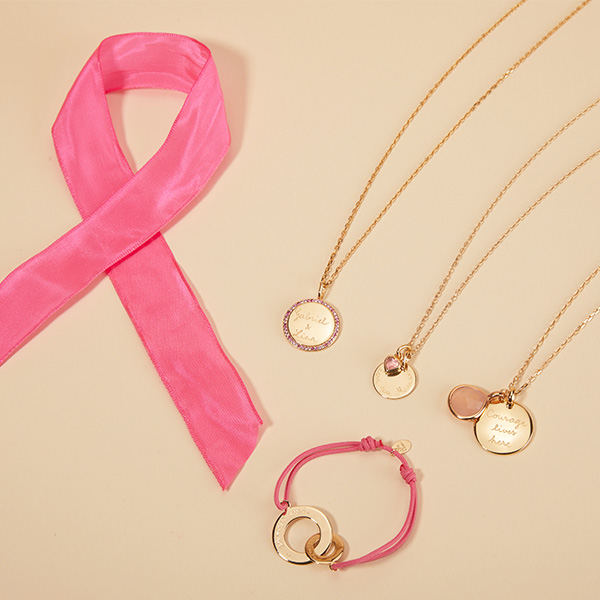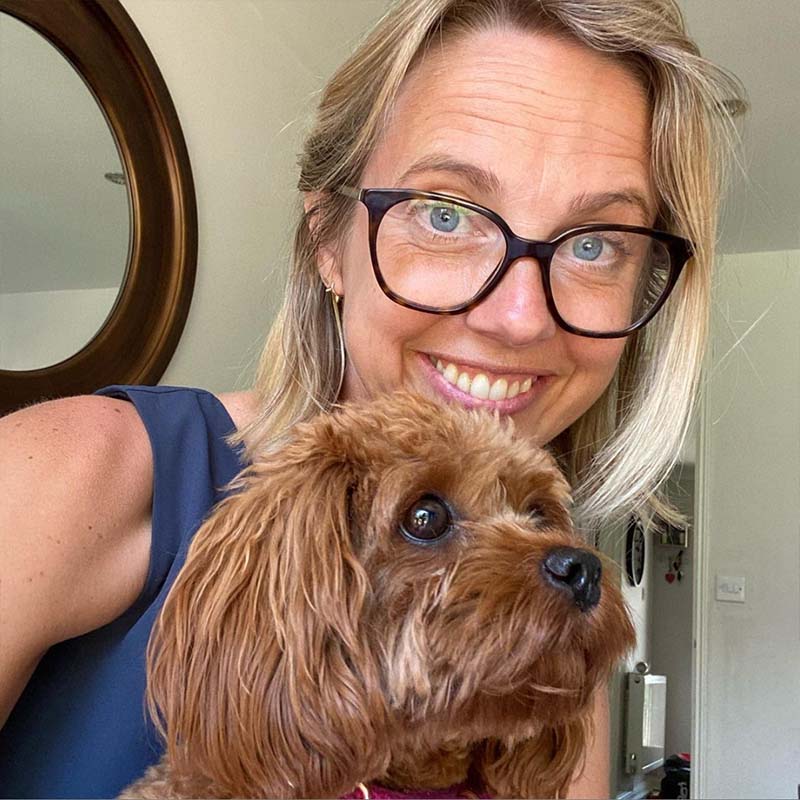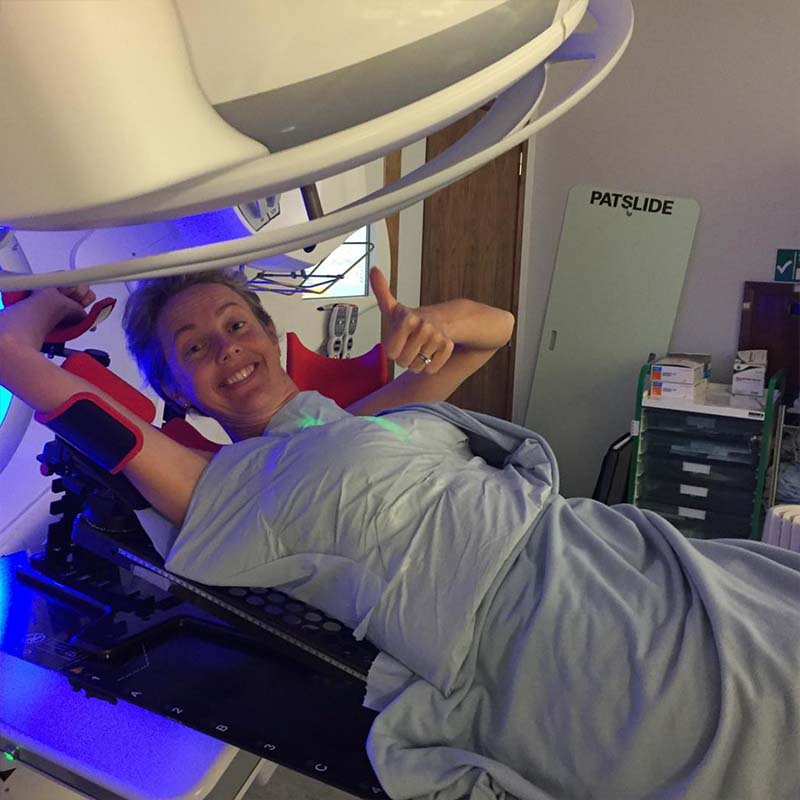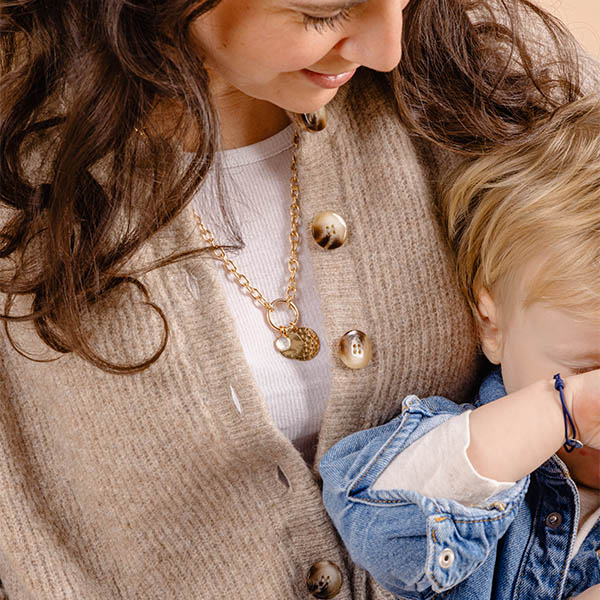Breast Cancer Awareness Month
- Merci Maman
- Motherhood Journal
- 1 Oct 2025
- 968views

The most common form of cancer in the UK is breast cancer, with 1 in 8 women being diagnosed with the disease in their lifetime. On average, in the UK 31 people die of the disease every day. These statistics are why it is imperative for women to regularly check their breasts and inform their GP of any unusual changes.
The month of October is Breast Cancer Awareness month, and here at the Merci Maman London office we were lucky enough to have an intimate talk with Helen Addis (otherwise known as thetittygritty) on the realities of living with and surviving the disease.
Helen’s Story

Background Information
Helen is Features Editor of the ITV Lorraine show and has enjoyed almost 20 years in the television industry. She is also a mother of 3 and since her diagnosis she has co-founded The C List, which she lovingly refers to as goop for cancer patients, and her online diary thetittygritty.com. At the time of her diagnosis she was a 39-year-old woman who lived a relatively healthy and normal lifestyle. Her age at diagnosis was 11 years under the threshold for being invited to a breast exam by the NHS. This highlights the importance of Self Breast Exam’s as 17.89% of women who are diagnosed are between the ages of 15-49.
Getting Diagnosed
When Helen discovered a lump the size of a chickpea on her breast she initially though it may have just been a hormonal change. However, she did not dismiss it and contacted her GP to book in a breast exam. By the day of her exam had arrived, a further 3 lumps had appeared including one underneath her armpit. She underwent a mammogram, ultrasound and biopsy and went home with the knowledge that she would be back in a few days to be given the all clear.
However, this was not the case. 4 days later upon returning to her consultant Helen was given the devastating news that she had Grade 3 invasive cancer. It had spread to her lymph nodes. Helen recalls her first thought being:
“I don’t have time to have cancer, I have 3 kids and a full-time job and I’m caring for a mum with dementia!”
Upon hearing this statement, it became apparent that Helen, like most women, put’s herself last at the hierarchy of importance.
Telling her Children
One of the most challenging aspects Helen faced when dealing with cancer was having to tell her 3 children that she had the illness. At first, she used the analogy of a verruca. She tried to explain that just like how her children have to get verrucas removed from their feet, she has to get a special one removed from her breast. Her eldest, abruptly asked if it was cancer. Helen answered truthfully, realising she had to be completely open to put others around her at ease.
Treatment

Her treatment was intense. Helen had a mastectomy, an axillary node clearance, 16 rounds of chemotherapy, and radiotherapy. Throughout all of this however, Helen made it her mission to educate and help others. She started ‘come chemo with me’ where she invited her friends to sit in her chemo sessions. Whilst doing this she discovered that 90% of them didn’t regularly practice self-examinations. This is what inspired her to create her Change + Check campaign, supported by Lorraine.
Change + Check
The focus of the campaign is to raise awareness on the signs and symptoms of breast cancer. Stickers showing you how to check were placed in changing rooms in retailers like John Lewis, Monsoon and Asda. When the pandemic hit and all of a sudden changing rooms were closed, Helen took initiative and contacted the Royal Mail so that the stickers could be directly delivered to the doorsteps of people nationwide. The campaign proved successful with 52 people coming forward to share that since checking they have been diagnosed with breast cancer, and 51 of those being under the screening age.
It has been 18 months since Helen’s last treatment, yet she still has to have scans every 6 months to ensure that there is No Evidence of Disease (NED) left. However, just because her journey may be over doesn’t mean she will stop inspiring and being an advocate for women with cancer.
Advice
- Before doing a physical exam ensure you do a visual one to assess any changes
- The best time to check for a menstruating woman is the last day of your period or the week after – never whilst on your period as the body is going through hormonal changes and your breasts are likely to be more tender
- Use the pads of your fingers when checking
- The surface area that you should be checking is from the collarbone all the way to the top of the ribs as this is the area that breast tissue encompasses
- Take your time to ensure that you do not skip or miss any unusual lumps or bumps
- Check regularly!
- Book an appointment with your general practitioner if you find anything abnormal
Useful Links
- https://www.itv.com/lorraine/tags/change-and-check
- https://thetittygritty.com/
- https://www.the-c-list.com
- https://www.cancerresearchuk.org
Merci Maman supports Breast Cancer Awareness Month
As a brand built by women, for women, Breast Cancer Awareness is very close to our hearts, so wear your necklace in support and close to yours. Support Breast Cancer Awarness Month this October. Discover our selection of hand-engraved pieces, from which 100% of profits will be donated to the charity www.bcrf.org.
FAQ
What is Breast Cancer Awareness Month?
Breast Cancer Awareness Month is observed every year in October. It aims to raise public awareness of early detection, treatment and palliative care of breast cancer.
Why is it important to raise breast cancer awareness?
Raising awareness promotes regular breast self-examination and encourages women to consult a doctor as soon as they notice any unusual changes, which can lead to early detection and more effective treatment.
Why is it important to consult a doctor if changes are detected during self-examination?
Consulting a doctor allows any abnormality to be diagnosed quickly, which can increase the chances of effective treatment and cure.
Why is breast cancer the most common form of cancer in the UK?
Breast cancer is the most common form of cancer due to various risk factors, including family history, genetic mutations and environmental and hormonal influences. Increased awareness and screening programmes have also contributed to the rise in diagnoses.
What are the signs and symptoms of breast cancer that women should look out for?
Signs and symptoms include lumps or masses in the breast or armpit, changes in the size or shape of the breast, pain in the breast, retraction of the nipple and discharge from the nipple. Any unusual changes should be reported to a doctor.
How can I support breast cancer awareness?
You can help by sharing information about breast cancer, taking part in awareness-raising events and making donations to research and support organisations. You can also help by encouraging the women in your life to carry out breast self-examinations and to see their doctor regularly.
How can breast self-examination save lives?
Regular breast self-examination allows women to get to know their own bodies and detect any abnormalities early on. Early detection increases the chances of successful treatment and can save lives.
At what age should women start having breast self-exams?
Women should start having breast self-exams from the age of 20 and continue throughout their lives. This is particularly important for women who are not yet eligible for regular screening mammograms.
What are the common treatments for breast cancer?
Common treatments include surgery (mastectomy or lumpectomy), chemotherapy, radiotherapy, hormone therapy and targeted therapies. The treatment plan depends on the type and stage of the cancer, as well as the patient's general health.
What are the risk factors for breast cancer?
Risk factors include age, family history of breast cancer, genetic mutations (such as BRCA1 and BRCA2), hormonal exposures, lifestyle (such as alcohol and smoking), and certain environmental factors.
What are some tips for supporting someone with breast cancer?
Offer emotional and practical support, listen without judgement, help with everyday tasks, accompany them to their medical appointments, and encourage them to take part in support groups or consult mental health professionals.
How can I prepare for a breast screening appointment?
Prepare a list of questions to ask your doctor, note any symptoms or changes, bring a medical history, and be prepared to discuss any family history of cancer.
What is The C List and how does it help cancer patients?
The C List, co-founded by Helen Addis, is an online platform offering resources, advice and products specifically designed for cancer patients, inspired by the 'goop' concept for cancer patients. It aims to improve patients' quality of life by providing them with tailored information and support.







